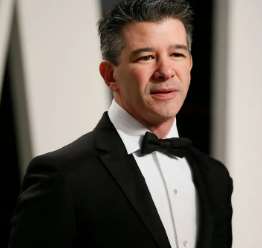Dr. John Delony: The Loneliest Generation And The CNN Interview

Table of Contents
Dr. John Delony's Expertise and Research on Generational Loneliness
Dr. John Delony, a leading expert in social psychology and gerontology, has dedicated years to studying the complex issue of loneliness and social isolation across different generations. His research employs a mixed-methods approach, combining quantitative data analysis with qualitative interviews to gain a comprehensive understanding of this multifaceted problem. His studies utilize large datasets from national surveys, combined with in-depth interviews to provide nuanced perspectives on the lived experiences of loneliness.
Key findings from Dr. Delony's research include:
-
Specific age groups most affected by loneliness: While loneliness affects people of all ages, Dr. Delony's research points to a particularly high prevalence among young adults (18-25) and older adults (65+). These groups often experience distinct contributing factors.
-
Contributing factors identified: Dr. Delony's work identifies several interconnected factors driving generational loneliness. These include:
- Technological advancements: While technology offers connection, it can also lead to increased social comparison and feelings of isolation.
- Societal changes: Shifting family structures, increased geographical mobility, and the decline of traditional community structures contribute to decreased social interaction.
- Economic factors: Financial insecurity and unemployment can exacerbate feelings of loneliness and isolation, limiting access to social activities and support networks.
-
Statistical data: Dr. Delony’s research consistently shows a significant rise in reported loneliness across various demographic groups, with alarming statistics highlighting the increasing prevalence of social isolation in recent years. Specific data points from his research are often presented visually in his presentations and publications.
Key Takeaways from the CNN Interview
Dr. Delony's CNN interview powerfully illustrated the devastating consequences of generational loneliness. He emphasized the widespread nature of the problem, highlighting not just the numbers but the human stories behind the statistics.
Key takeaways from the interview include:
-
Impactful statements: Dr. Delony stressed the crucial link between social connection and overall well-being, emphasizing that loneliness is not simply a feeling but a serious public health issue with far-reaching consequences.
-
Solutions and strategies: He advocated for multi-pronged approaches, including community-based initiatives aimed at fostering social connections and technological solutions that promote meaningful interaction, not just superficial online engagement.
-
Emotional impact: The interview’s emotional impact resonated deeply with viewers, raising crucial awareness and highlighting the need for a societal shift in how we address and combat loneliness.
The Impact of Social Isolation and its Effects on Mental Health
The detrimental effects of social isolation and loneliness on mental and physical health are well-documented, aligning perfectly with Dr. Delony's findings. Prolonged loneliness significantly increases the risk of:
-
Increased risk of mental health issues: Depression, anxiety, and other mental health problems are strongly linked to chronic loneliness. Dr. Delony's research reinforces this connection, showing a clear correlation between social isolation and mental health outcomes.
-
Physical health consequences: Studies show that loneliness weakens the immune system, increases the risk of cardiovascular problems, and contributes to a decline in overall physical health. These findings reinforce the urgent need for preventative measures.
-
Importance of social connection: The research consistently highlights the vital role social connection plays in maintaining both mental and physical well-being. Strong social networks act as buffers against stress and provide crucial support during challenging times.
Potential Solutions and Strategies to Combat Generational Loneliness
Combating generational loneliness requires a multi-faceted approach, encompassing individual strategies, community initiatives, and broader societal changes. Solutions suggested in the interview and supported by Dr. Delony's research include:
-
Community initiatives: Creating and supporting community programs, such as senior centers, volunteer opportunities, and social clubs, can significantly reduce feelings of isolation and foster meaningful connections.
-
Technological solutions: Leveraging technology to improve communication and facilitate social interaction can be beneficial, but it is crucial to focus on building genuine connections, not just superficial online engagement.
-
Policy and government intervention: Government policies that promote social inclusion, support community programs, and address the underlying economic factors that contribute to loneliness are essential.
-
Individual strategies: Individuals can proactively combat loneliness by engaging in activities that promote social connection, seeking support when needed, and cultivating meaningful relationships.
Conclusion
Dr. John Delony's research and his compelling CNN interview have brought the issue of the "loneliest generation" to the forefront of public consciousness. His findings highlight the devastating impact of social isolation and loneliness on both mental and physical health. The urgency of addressing this growing public health crisis cannot be overstated. By understanding the complexities of generational loneliness and implementing the strategies outlined above, we can work towards creating a more connected and supportive society, mitigating the harmful effects of isolation and fostering a sense of belonging for everyone. Learn more about Dr. Delony's work and explore resources for combating loneliness by visiting [link to relevant resources]. Share this article to raise awareness and help us understand the loneliest generation and address the challenges of social isolation.

Featured Posts
-
 Luxury Carmakers Face Headwinds In China The Bmw And Porsche Case Study
May 19, 2025
Luxury Carmakers Face Headwinds In China The Bmw And Porsche Case Study
May 19, 2025 -
 Istoriko Kai Simasia Ton Apofaseon Tis Synodoy Toy Patriarxeioy Ierosolymon
May 19, 2025
Istoriko Kai Simasia Ton Apofaseon Tis Synodoy Toy Patriarxeioy Ierosolymon
May 19, 2025 -
 Gazze Den Ramazan Haberleri Anadolu Ajansi Nin Oezel Yayini
May 19, 2025
Gazze Den Ramazan Haberleri Anadolu Ajansi Nin Oezel Yayini
May 19, 2025 -
 Ubers Kalanick Dropping Project Name Was A Costly Error
May 19, 2025
Ubers Kalanick Dropping Project Name Was A Costly Error
May 19, 2025 -
 Open Ai Unveils Streamlined Voice Assistant Development At 2024 Event
May 19, 2025
Open Ai Unveils Streamlined Voice Assistant Development At 2024 Event
May 19, 2025
